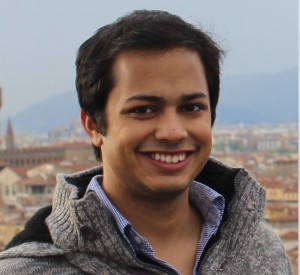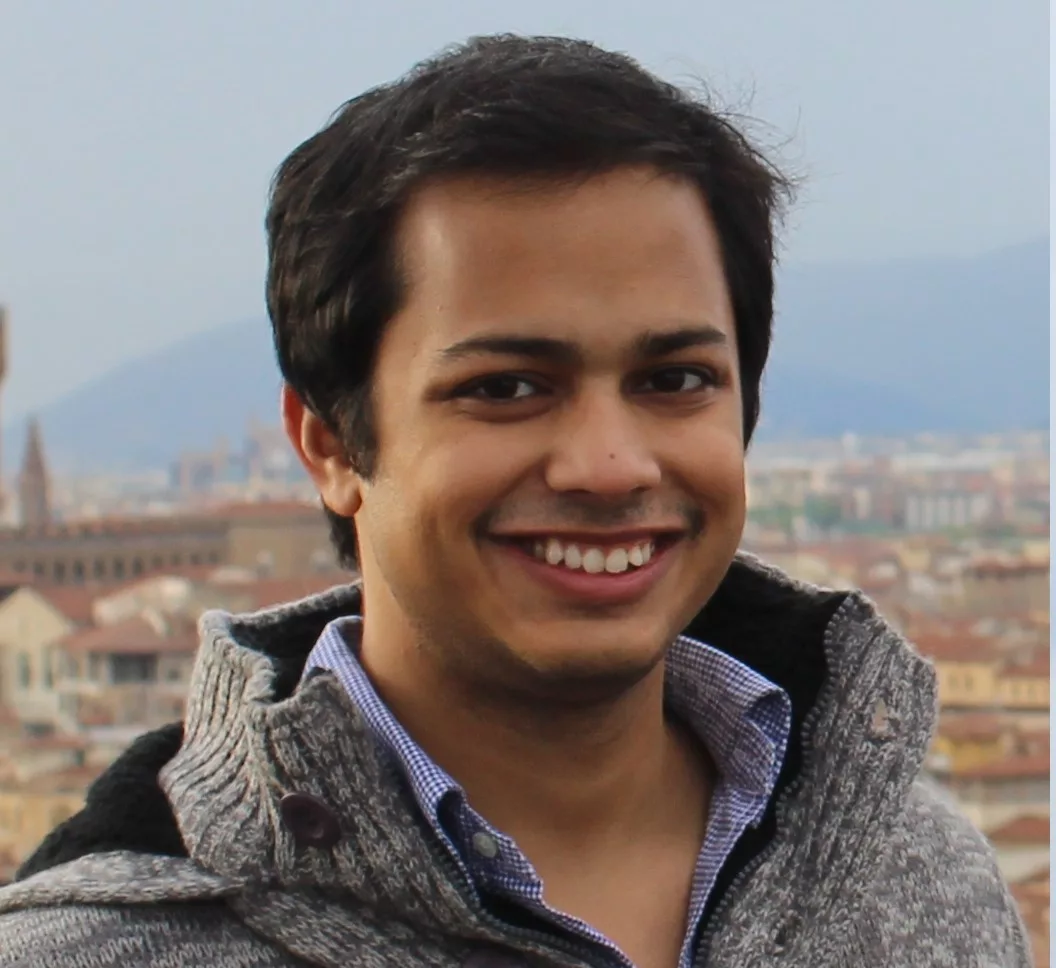 Minhaj Chowdhury is the co-founder and CEO of DrinkWell, a venture that is working to solve the global crisis of arsenic contaminated water. His venture supplies filtration technology and business tools to a network of entrepreneurs who sell arsenic free water within their local communities. In 2014 Minhaj was named a 2014 Echoing Green Global Fellow, and won a scholarship to SOCAP and a Gratitude Award. This year he was named one of Forbes Magazine’s 30 Under 30 Social Entrepreneurs.
Minhaj Chowdhury is the co-founder and CEO of DrinkWell, a venture that is working to solve the global crisis of arsenic contaminated water. His venture supplies filtration technology and business tools to a network of entrepreneurs who sell arsenic free water within their local communities. In 2014 Minhaj was named a 2014 Echoing Green Global Fellow, and won a scholarship to SOCAP and a Gratitude Award. This year he was named one of Forbes Magazine’s 30 Under 30 Social Entrepreneurs.
We recently reached Minhaj in Bangladesh to talk about his path to entrepreneurship and his insight into what it takes to build an innovative social impact venture.
SOCAP: You grew up in the US, but have family in Bangladesh, some of whom have been affected by arsenic poisoning. Do you think it is helpful for impact entrepreneurs to have personal connections to their area of impact?
I absolutely think it is. It is just so hard otherwise. To fish out the motivation and tenacity you need. Especially working in countries where the institutions are broken, the infrastructure is far from smooth, the rule of law and governance are severely lacking, where the ability to maintain accountability is severely challenging. It’s not just one issue of, “how do I set up a clean water filtration system that can provide people safe water?” It’s all these other things that impede any entrepreneur from doing well. So you are really taking on a litany of issues all at the same time. Ironically what I’ve found is that, the deeper I get into this work, the deeper I try to scale it, the less time I’m actually spending on the actual product and the more time I’m spending on these kind of ecosystem governance issues that we need to deal with to really scale the solution. When it comes to supply chain, when it comes to franchise contracts, endorsements, and all kinds of other things that creates the enabling environment for you to scale.
I was drawn to this issue because my family’s home villages were affected by the arsenic crisis. We had family members fall sick and some passed away. Certain friends and family members maintained positions in the civil service that continuously failed at solving this issue. That really helped me understand the problem. What really got me to invest my life in this problem was the fact that I found myself being uniquely advantaged to traverse the worlds between Bangladesh and the US. I could speak Bangla in Bangladesh and really connect with the lowest decile populations. I can venture out in the village and speak with people, and really get the true story of what their challenges are. I am also comfortable in a suit stateside where I can pitch and present in boardrooms in the US where the flows of capital are sufficient to actually achieve scale. My family connections with the public health sector and other stakeholders have helped me pursue this.
So having a support system on the ground helps you overcome many of the unique challenges found in social impact work?
Yes, I rely on my family. The biggest issue with scaling a social enterprise is finding the right talent. Talent that you know can be good managers. My family has built large businesses in Bangladesh so I’ve been able to access the talent pools there to fill critical positions for Drinkwell with trustworthy, reliable staff that can get the job done without taking advantage of the fact that they are working for a firm run by a Bangladeshi-American. I really rely on my family for that piece of human resource, talent needs. Which is I think the biggest issue, not just in Bangladesh and India, but frankly anywhere. So having a local connection, specifically with family that has been enterprising, helps me overcome that.
Another challenge is with procurement, supply chain, and general know-how of how to operate in a country in a prudent way. Capital from the US is great, but know-how is severely lacking. Frankly, it is unfair for me to expect someone based in San Francisco who wants to invest in impact to be able to add operational value. And so having the family here helps. And then beyond all those more tactical things, I think just the peace of mind knowing you have your family, they love you, they care for you, they are here for you is helpful. But what really got me over the line is fellowships.
I credit a lot of my drive to the Fulbright Fellowship program. Another important fellowship that helped me get Drinkwell off the ground was Echoing Green. That is a family of entrepreneurs that are really trying to build businesses in these really hard to reach areas. So Echoing Green, they are a fantastic two-year fellowship program that really, beyond the two years when they give you funding, they give you a network of hundreds of fellows based all over the world. I have in my cohort alone at least a dozen other entrepreneurs based in India who I can call up, or meet up with and say, “Hey it’s been really stressful. What about you?” We’re all in it together and that helps with the lows. And I think so it’s that combination of family and fellowships that really helps me persevere through the grind of entrepreneurship.
What is really inspiring you in your work right now. What is giving you hope?
I would say, by far, it is meeting with prospective entrepreneurs. On the field in Bangladesh we have the chance to connect with amazing people who don’t have access to Microsoft Office or the Internet. My view of impact today is that you can be successful only if you know how to use Microsoft Office. That is the structural mechanism that is set for funding and for progress. There are so many people that are close to the problem, and even closer to the solution, that we never hear from at conferences or case studies because they can’t communicate through Microsoft Office. When I meet with them it gives me a whole new perspective on the hope that we have in solving these crises. Because these voices, despite being underserved and unheard, are persisting because it is a matter of life or death for them. And they have some incredibly innovative ideas on how to solve issues.
One of our entrepreneurs got an innovative idea from one of our customer’s experiences with our product. It has been very tough to convince people to buy our water. Because water is something that should be, frankly, free. It’s a human right. So how do you then convince people to purchase safe water? Arsenic free water is something you can’t visibly see the benefit of because arsenic is something that you can’t see or smell. The entrepreneur I speak of heard about a young woman who found a 10 liter jug of Drinkwell water in her home for the first time and thought, “Well that is interesting, we’ve never bought water before. I don’t know what this is for but I’m just about to take a shower so maybe I should use this.” Drinkwell launched during wedding season. She was getting ready for a wedding event that night–a holud. So she used our water for showering and then at the reception everyone said to her, “Oh my gosh, how is your hair so smooth?” And she told them, “Oh I used Drinkwell water.” Sales went up 200%.
Getting better health outcomes is a long-term benefit. Arsenic itself takes about two to five years to onset. So I’m not going to part with my hard earned dollars for that. But man if I can immediately look good like this, I’m in. I’ll definitely subscribe to this water. This entrepreneur picked up on that. And really helped brand the water, as what is essentially in Bangla, “Drinkwell, Live-well, Be-well.”
What really hit this home for me was she said I want to change the consumer’s mindset in looking at this product as an alternative to free water and I actually want them to look as an alternative to a beauty product like shampoo or detergent. If I can convince people to use my water because it has less iron for smooth hair, for better tasting fish when cooking, for whiter whites when doing laundry, and then happen to also get the long term health benefits because they are consuming my water, then we have won.
This insight would never have occurred if we stuck to our lean start-up approach focused on building experiments in Excel and just executing those out in the field without involving her directly in our process. By giving these entrepreneurs the agency to really take on the marketing and sales themselves we’re able to prove there is hope in solving this through innovative ways.
What do you foresee coming up for Drinkwell in the next year?
We’re currently preparing for scale. The biggest barrier to that is accessing finances for entrepreneurs. I don’t think that’s exclusive to us. I think any tech energy or water social enterprise really has to confront the issue of, especially with high upfront costs, how to bridge the gap that your franchisees may have. So we want to focus on really building partnerships and derisking cash flow for our franchisees to the point where other debt financiers come in and provide debt. It’s a very scarce resource in social impact. Up until now we’ve really scaled through CSR and grants. Now we’re really buttoning up our operations to have much more long term visibility into cash flows. Implementing cash management processes, like the inclusion of mobile money where you can guard against theft, will be critical to give microlenders the assurance they need around payments. That is the top risk that I’m focused on both this year and next year.
Beyond that, another huge development for us is that we recently received a government grant to set up pipe water systems, which is really the holy grail. We want to mimic the experience we get here in the U.S. of being able to turn the tap and have safe water. We plan to execute those projects by the last quarter of this year. If that goes well it changes the entire game. The government financing is great because the government should provide the capex financing (as opposed to microlenders) as we feel the public sector is a critical stakeholder to eradicating the water crisis. So if we can nurture these public-private partnerships and marry them with the innovations around mobile technology specifically surrounding payments and sensors, there is no reason why we can’t reach a million people by 2017.
Minhaj Chowdhury earned his degree in Public Health Studies from Johns Hopkins University in 2011. After graduation he won a Fulbright Fellowship and spent the next year in Dhaka, Bangladesh developing and testing three social business models across six villages as potential market-based solutions to the arsenic water crisis. He presented his findings to heads of Bangladesh Ministry of Health, UNICEF, WaterAid Bangladesh, Dhaka WASA, and the US Ambassador to Bangladesh. After his Fulbright, Minhaj spent 2 years helping public sector organizations design and deploy health insurance exchanges and data systems via Salesforce as a technology consultant. He now is the CEO and Co-Founder of Drinkwell.
For social entrepreneurs who are looking for advice on how to maximize your SOCAP experience, read Minhaj’s Chowdhury’s article How to Get the Most out of SOCAP: Tips for Entrepreneurs.






